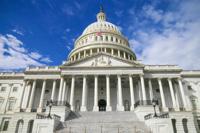
Getty Images
As the United States approaches a pivotal election year, understanding the impact of misinformation on Latino communities becomes increasingly crucial. A recently released poll titled "2024 Poll Takeaways: Latinos and Misinformation," conducted by the Digital Democracy and Data Society Initiative (DDIA) in partnership with YouGov, surveyed a nationally representative poll of 3,000 Latino adults. The findings offer timely insights into how misinformation could shape the political landscape for Latinos and influence electoral outcomes.
The DDIA study investigated various aspects related to misinformation in the context of the 2024 election. These included questions about familiarity and belief in misinformation, the influence of political identities and values on engagement with misinformation, levels of trust in institutions and the electoral process and perceptions regarding the impact of artificial intelligence in the online world.
The findings from the poll underscore that misinformation can significantly sway political opinions and behaviors among Latinos. With digital platforms serving as primary sources of news and information for many in this community, disseminating misleading or false content poses a substantial risk. A majority of Latino individuals consume media on platforms such as YouTube, which could distort their perceptions of candidates, policies and electoral processes.
Misinformation related to Latinos has surfaced in various ways throughout this campaign cycle, impacting perceptions around immigration policies. Republican presidential nominee and current frontrunner Donald Trump has built a platform on anti-immigrant rhetoric that spreads falsehoods about crime rates, job competition and welfare use among Latino immigrants that has perpetuated stereotypes and misconceptions.
“They're taking Black jobs now," Trump said during the CNN debate in regards to immigrants, "They're taking Black jobs, and they're taking Hispanic jobs."
Recently, the Democratic National Committee (DNC) endorsed Kamala Harris as the party's candidate for the 2024 presidential election. Harris’s potential candidacy for president generated a range of reactions among Latino voters, reflecting a complex tapestry of hope, skepticism and nuanced expectations.
Immediate reactions have ranged widely although Latino voters have generally responded favorably. A recent New York Times/Siena College poll shows Harris leading Trump by 19 percentage points among Hispanic voters, with Harris at 57% and Trump at 38%. In contrast, a June poll by the same firm found Biden ahead by just one percentage point among Hispanic voters, 45% to 44%.
Despite the optimism, there is also a segment of Latino voters who approach Harris’s candidacy with caution and skepticism. Some Latino voters feel that Harris and the administration have not done enough to address specific issues facing Latino communities, such as immigration reform and economic inequality. These voters might feel that while Harris’s presence is symbolic, with concrete actions and policies seen as lacking.
Sentiments from Latino voters about Harris can indeed highlight broader issues with misinformation in the election cycle. This skepticism often stems from several factors, including being targeted by misinformation and disinformation campaigns and the distrust of political figures and institutions due to past experiences of marginalization or unmet promises.
The poll finding highlights that a segment of the Latino population is influenced by misinformation regarding right-wing ideology on education. Of those surveyed, it was found that 22% of Latinos are familiar with and believe in the misinformation narrative that “traditional values are being eroded by a leftist political agenda that is being implemented in schools.”
A similar percentage of Latinos (21%) believe the false narrative that “there is a deep state composed of shadowy political figures that is working against the public.”
In an increasingly polarized political environment, misinformation can be used strategically to deepen political divides. This can be especially potent in elections where candidates like Harris and Trump are perceived as representative of broader political or social shifts. Misinformation about policies or actions can be used to exploit existing divisions within the Latino community, a voting demographic that has grown increasingly more conservative over the last several years.
The DDIA poll also found that Latinos who extensively consume right-wing news and information on social media are more likely to encounter and be influenced by misinformation circulating online, significantly impacting their perceptions. With the rapid dissemination of misleading or false information across various digital platforms, Latinos often find themselves navigating an information landscape where discerning truth from falsehood can be challenging. This phenomenon not only affects individual decision-making but also undermines trust in institutions and exacerbates social divisions.
Vulnerabilities and challenges
Latinos face unique vulnerabilities to misinformation due to various factors, including language barriers, cultural or political sensitivities and targeted disinformation campaigns. These challenges are exacerbated by disparities in access to credible information sources and differences in media consumption habits. As a result, misinformation can exploit these gaps, creating target disinformation campaigns that can influence voter attitudes and perceptions in ways that may not align with accurate electoral information.
The spread of misinformation can sway political opinions and behaviors among Latinos, influencing voting patterns and civic engagement. This poses a significant threat to the democratic process by potentially skewing public discourse and electoral outcomes.
The study highlights variations in media consumption habits among Latinos, with a significant portion relying on social media platforms and community networks for news and information. This reliance can increase susceptibility to misinformation if not accompanied by critical media literacy skills.
According to key highlights from the DDIA poll, Latinos see a lot of misinformation but are also very skeptical of what they see. Latino participants critically evaluated information, but were generally skeptical of online content. Many people were unsure when it came to identifying misinformation. The poll tested seven misleading and/or conspiratorial narratives and 15 false claims, with approximately 62% of the 3,000 Latinos surveyed either outright rejecting the misinformation claims tested, or not being sure if what they saw was true or false.
To mitigate the impact of misinformation on the upcoming election, education and awareness become critical. Promoting media literacy initiatives tailored to Latino communities can empower individuals to critically evaluate information sources and discern reliable news from misinformation. Educational campaigns should emphasize the importance of verifying information before sharing and the consequences of spreading false content.
Strengthening community networks and partnerships with local organizations can foster a more informed electorate. Engaging community leaders and trusted influencers within Latino communities can help disseminate accurate information and counteract the spread of misinformation.
Conclusion: Promoting media literacy is key to a resilient Latino electorate
The findings from the "2024 Poll Takeaways: Latinos and Misinformation" underscore the urgency of addressing misinformation as a critical issue within Latino communities. By promoting media literacy, fostering community engagement and advocating for responsible digital practices, stakeholders can work towards building resilience against misinformation and safeguarding the integrity of information ecosystems.
As the 2024 election approaches, addressing the impact of misinformation on Latino communities remains a critical priority. Empowering Latinos with the tools and knowledge to navigate the information landscape effectively will be essential in ensuring a fair and informed election outcome. Through collaborative efforts and proactive measures, the path forward involves building a resilient electorate capable of discerning fact from fiction amidst the complexities of modern digital media.









(0) comments
Welcome to the discussion.
Log In
Keep it Clean. Please avoid obscene, vulgar, lewd, racist or sexually-oriented language.
PLEASE TURN OFF YOUR CAPS LOCK.
Don't Threaten. Threats of harming another person will not be tolerated.
Be Truthful. Don't knowingly lie about anyone or anything.
Be Nice. No racism, sexism or any sort of -ism that is degrading to another person.
Be Proactive. Use the 'Report' link on each comment to let us know of abusive posts.
Share with Us. We'd love to hear eyewitness accounts, the history behind an article.